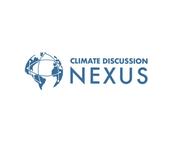Call that science? - Highlighted Article
- Posted On:
- Jul 4, 2024 at 6:00 AM
- Category
- Climate Change
From: Climate Discussion Nexus
By: OP ED Watch
Date: June 5, 2024
A correspondent recently sent us a poster “A Rough Guide to Spotting Bad Science” that we found very interesting because it wasn’t about climate change. When one is engaged in controversy there is a persistent temptation to “cast a covetous eye on the outcome”, in Kierkegaard’s apt and haunting phrase. It is easy to start choosing data and prejudging lines of argument based on whether they seem likely to take us where we want to go. Or rather where we want to go in the heat of the moment. Surely on calm reflection all of us want to go where the truth lies, even if getting there requires us to admit we had been mistaken in some regard. So this post, from a site called “Compound Interest” in 2014, is useful in helping us all pause and reflect calmly. The 12 items listed by Andy Brunning, who runs the site, are “1. Sensationalized headlines 2. Misinterpreted results 3. Conflicts of interest 4. Correlation and causation 5. Unsupported conclusions 6. Problems with sample size 7. Unrepresentative samples used 8. No control group used 9. No blind testing used 10. Selective reporting of data 11. Unreplicable results 12. Non-peer reviewed material”. And note that we present them even though #12 strikes us as itself bad science, given the extraordinary flood of evidence lately that peer review is deeply, even fatally flawed, and because climate alarmists are or were very fond of insisting that it was a silver bullet. As for the rest, well, they seem to us to be very important errors and very common, including among alarmists.
Easy to call, hard to run, we say echoing Oakland Raiders quarterback Kenny “Snake” Stabler. Of course there is no silver bullet in making sense of the world, here or anywhere. And when it comes to items like “Unsupported conclusions” there’s a major risk of an exchange of “I know you are but what am I?” taunts. But we still want to run through the list in order and underline how often they seem to us to crop up on the other side of the climate barricade. And we intend to return to them in future Newsletters to continue the discussion.
Naturally alarmists may say the same of us and we’re happy to debate it. But first let’s think about whether these really are good ground rules. We think they are, other than the last, so let us know if you don’t. And if you do, here’s our summary indictment of the sins against science by those promoting an urgent man-made climate crisis, some of them scientists and others second-hand dealers in scientific ideas.
For starters, how about sensationalized headlines? Oh yeah. They’re a dime a dozen in climate, including such gems as “‘Doomsday glacier,’ which could raise sea level by several feet, is holding on ‘by its fingernails,’ scientists say”. Glaciers got fingernails? Every week brings a crop of them, mostly flawed in ways that fall under subsequent headings here but many also because they predict things that don’t happen.
Misinterpreted results? Look at the stuff on catastrophic sea level rise just for starters. And the way most of these shrieking headlines vastly overstate even what’s in the news story, let alone the study the story is based on.
Conflicts of interest? Alarmists are quick to smear skeptics as in the pay of oil companies. But the real gravy train is tidal waves of government funding for research that confirms the orthodox narrative and almost exclusively that kind. It doesn’t prove they’re wrong, of course, or even that they’re venal. But it is a massive issue and one that they do not disclose or discuss. (continue reading)


